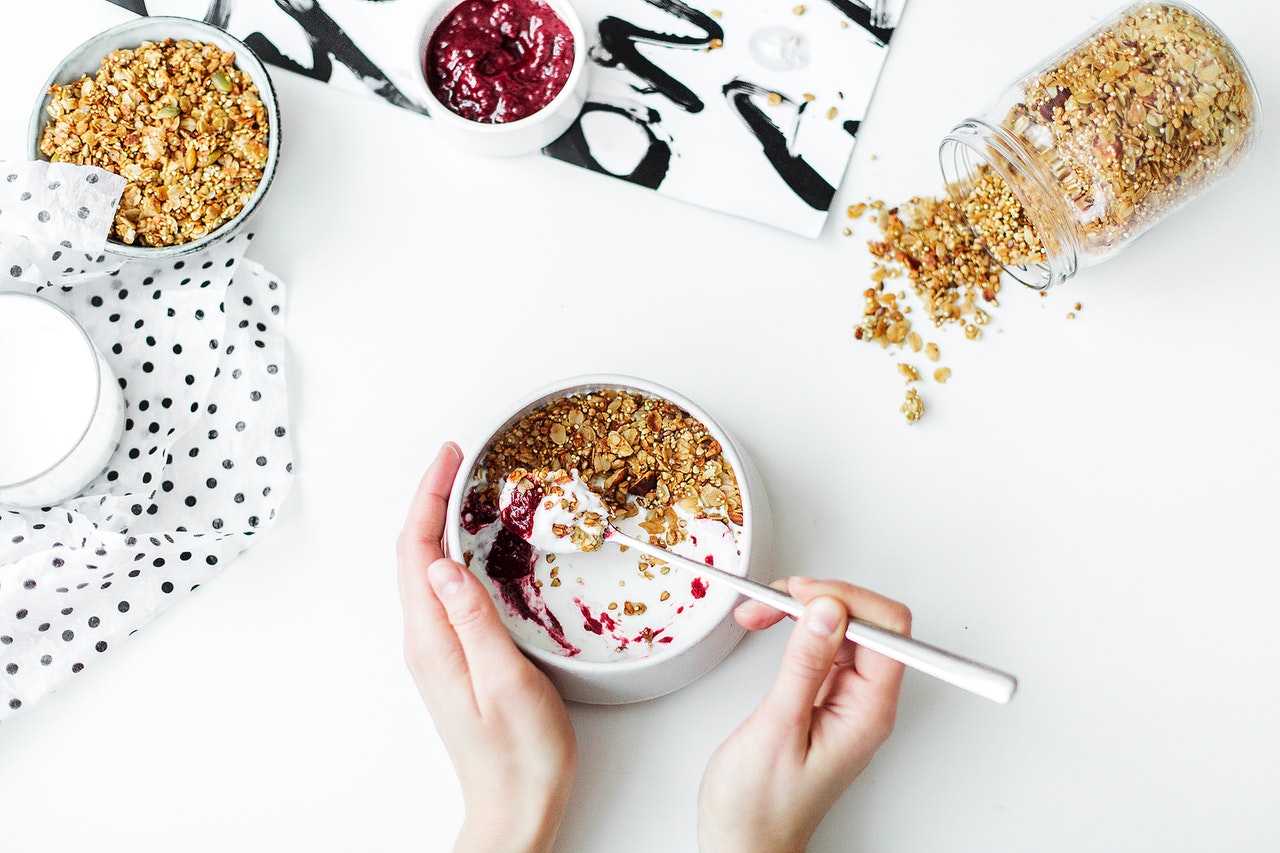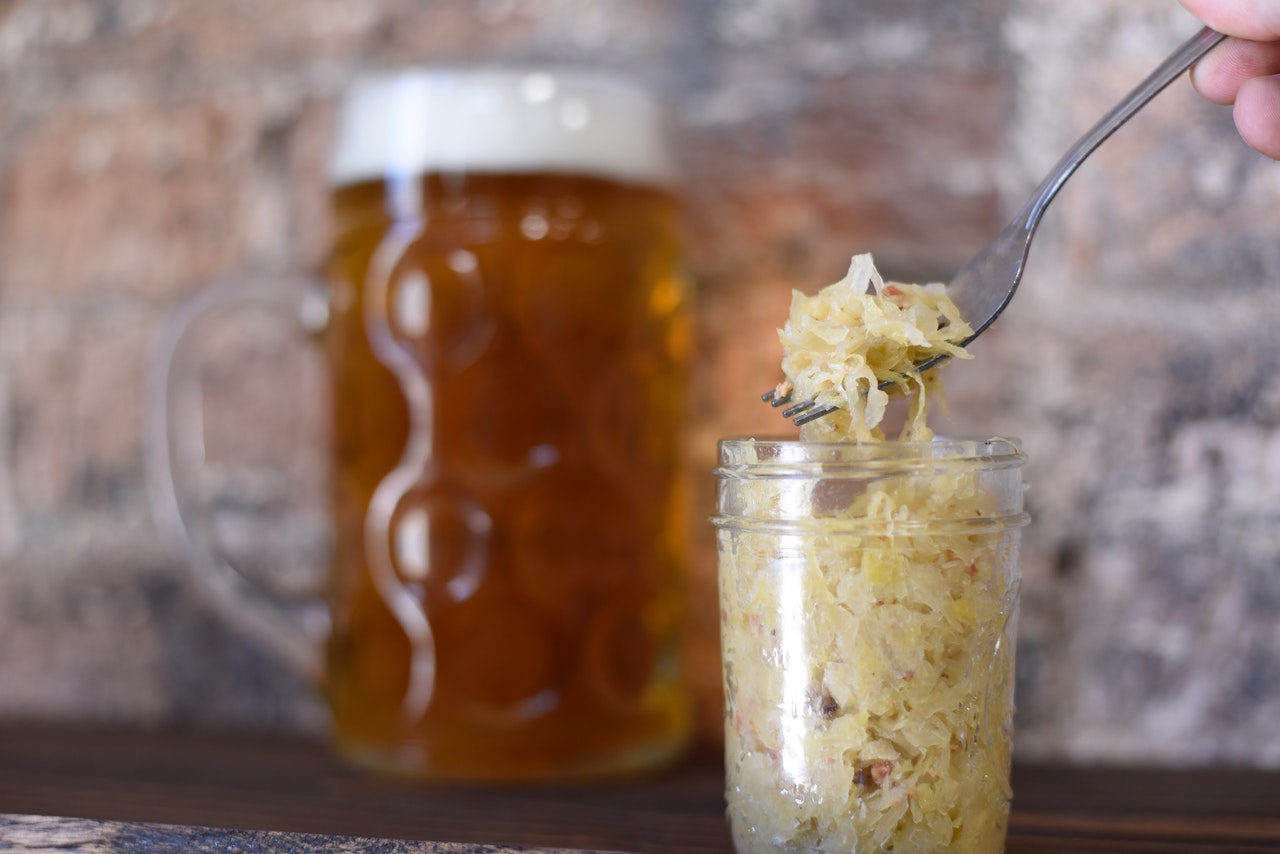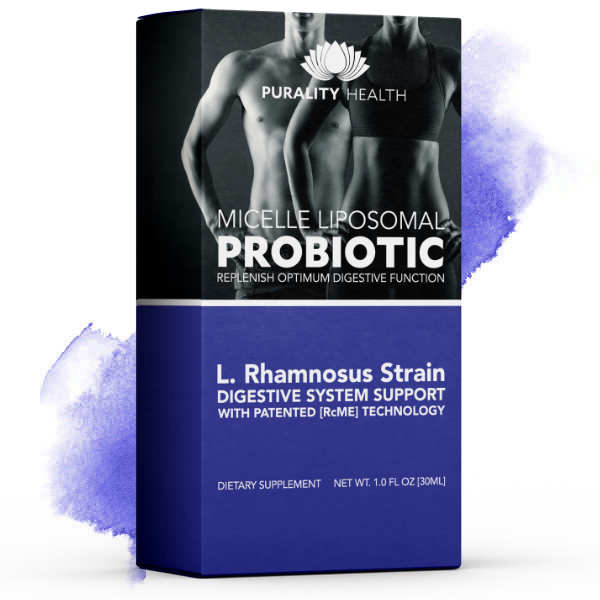Five Probiotic Foods to Add to Your Diet
It’s incredibly important to maintain the integrity of our gut microbiome, which is made up of trillions of tiny bacteria. While you may think that bacteria is dangerous, you should know that there are many bacterial strains that actually are very beneficial for the human body!
Check out this recent blog that outlines the benefits of maintaining a healthy gut microbiome!
So, how can you make sure that your gut bacteria is happy and healthy? One of the best ways that you can support the health of your microbiome is by making sure to get enough prebiotics and probiotics. Here’s the difference between the two:
Prebiotics are high fiber foods that help feed the healthy bacteria in your digestive tract. Prebiotics include foods like garlic, onions, bananas, asparagus, oats, apples, and even cocoa. Probiotics are foods or supplements that contain live beneficial bacterial strains that contribute to the growth and diversity of a healthy microbiome.
Let’s focus on probiotics, and how you can boost your diet to promote the health of your gut microbiome. You’ll notice that when it comes to dietary sources of probiotics, fermentation is a key component. That’s because the fermentation relies on beneficial bacteria to produce those unique, fermented flavors! Fermentation was initially used to help preserve foods without the use of refrigeration. And now, we understand the incredible health benefits that it can offer. Here are five fermented probiotic food options that you can add to your diet today.
1. Yogurt

You’ve probably seen that most of the yogurt available at your local grocery store advertises that it contains probiotics. The strains of bacteria in yogurt may vary, but you might see yogurt labeled with the individual strains lactobacillus acidophilus or lactobacillus bulgaricus. These strains are thought to play a role in promoting digestive health, as well as helping us maintain a healthy blood sugar. [1] Note, that when it comes to the strains of probiotics and food and supplements, the more the merrier. A healthy microbiome is characterized not just by size of healthy bacterial colonies, but the variation as well.
Keep in mind that not all yogurt is created equally. Many types of yogurt contain lots of added sugar, and while this hasn’t been scientifically proven to affect probiotic supplementation, it’s important to keep an eye on your daily sugar intake. Experts recommend limiting your daily intake of added sugar (the sugar added to foods, not that which is naturally occurring – like fruit sugar) to no more than 10% of your daily calories.
2. Miso Soup
Outside of being absolutely delicious, miso soup also contains friendly bacteria called Aspergillus Oryzae. You may also find this strain in other fermented foods found in Asian cuisine, such as tempeh, sake, soy sauce, and rice vinegars.
*Pro tip: look for an unpasteurized source of miso soup. The pasteurization process may kill off a lot of the friendly bacteria that will benefit your body.
3. Sauerkraut
 Sauerkraut is a popular probiotic that contains the lactic acid bacteria, lactobacillus. This bacteria has been extensively studied by researchers and is thought to promote digestive, as well as immune health. [2]
Sauerkraut is a popular probiotic that contains the lactic acid bacteria, lactobacillus. This bacteria has been extensively studied by researchers and is thought to promote digestive, as well as immune health. [2]
Essentially sauerkraut is just fermented cabbage! Interestingly enough – cabbage already contains this bacteria before the fermentation process. So, sauerkraut it’s no surprise that sauerkraut is one of the most rich sources of healthy bacteria that you can get your hands on!
4. Kimchi
Kimchi is the delicious, spiced cousin of sauerkraut. So, it’s no surprise that this lactobacillus-rich fermented dish is also a great option for promoting the health of your gut and immune system.
In addition to its benefits as a probiotic, kimchi is also loaded with spices that are rich flavonoids and polyphenols. These two nutrients are powerful antioxidants that can help protect the body against oxidative stress and damage.
5. Dark Chocolate

Dark chocolate is not only a probiotic, but a prebiotic, as well. As mentioned previously, prebiotics are fiber-rich foods that help feed the healthy bacteria in our gut, keeping them healthy and happy.
There have been studies to show that dark chocolate can help promote a healthy inflammatory response, and that healthy gut bacteria levels are on the rise after consuming it. [3]
Study leader John Finley, PhD, explains that cocoa powder is rich in two flavonol compounds, catechin and epicatechin, along with a small amount of dietary fiber. We do not digest or absorb these compounds very well, however, our gut bacteria begins to gobble them up as soon as they enter the colon. [3]
“The fiber is fermented and the large polyphenolic polymers are broken down into smaller, anti-inflammatory molecules that can be easily absorbed. In short, our gut bacteria become a fermenting factory, breaking down and releasing health-promoting compounds.” [3]
How Else Can I Support My Gut Health?
While fermented foods are a great source of probiotics, they’re not everyone’s cup of tea. If you’re not a fan of these food options, or you want to ensure you’re getting enough probiotics to support your overall welling, you may want to consider taking a supplement.
When you’re ready to invest in a potent and effective Probiotic formula, consider Purality Health®’s Micelle Liposomal Probiotic L.Rhamnosus formula, now with our unique RcME delivery for optimized probiotic absorption and utilization. Try our Probiotic risk free for 180-days with our money-back guarantee!
Citations
- Walter, Jens. “Ecological role of lactobacilli in the gastrointestinal tract: implications for fundamental and biomedical research.” Applied and environmental microbiology vol. 74,16 (2008): 4985-96. doi:10.1128/AEM.00753-08
- Orgeron II, Ryan Paul, et al. “Sauerkraut: A Probiotic Superfood.” Functional Foods in Health and Disease, vol. 6, no. 8, 2016, p. 536., https://doi.org/10.31989/ffhd.v6i8.262.
- J. Proteome Res. 2009, 8, 12, 5568–5579 Publication Date:October 7, 2009 https://doi.org/10.1021/pr900607v








